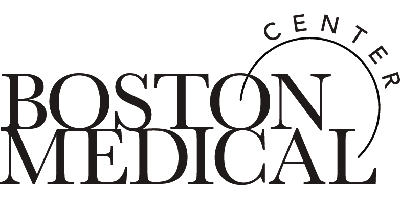Registered Respiratory Therapist - 36 Hours (Nights, Weekends Required) - 15K Sign-On Bonus!
 Boston Medical Center Boston Medical Center | |
 United States, Massachusetts, Brighton | |
 Feb 02, 2026 Feb 02, 2026 | |
|
I. Position Function: The Respiratory Therapy Department has formally adopted the American Association For Respiratory Care Clinical Practice Guidelines (AARC CPG) for patient care. Respiratory Therapists function in a physician supervised environment following AARC CPG (where applicable) as well as established departmental standards and practices. Respiratory Therapists provide critical care service to all patient age groups. Sign-On Bonus: At this time, we are offering a $15,000.00 Sign-On Bonus for external applicants to join the Respiratory Therapy team at Boston Medical Center - Brighton. This promotion will be available from June 30th until September 30th. II. Job Relationships: Reports to the Technical Manager of Respiratory Therapy (or his/her designee). Interacts with other health care professionals to plan, provide, monitor, and evaluate respiratory care services for out patients. III. Authority: Has the authority to provide all facets of critical care respiratory therapy based upon patient assessment and within hospital/department policies, procedures, and the American Association for Respiratory Care Clinical Practice Guidelines. In the event of an untoward response to therapy, the therapist will institute appropriate emergency procedures/protocols and notify the physician and nurse responsible for the patient while remaining in constant attendance at the patients bedside until relieved. IV. A. Responsibilities/Essential Functions: 1.) "Provides superior customer service to internal and external clients, customers, and patients as referenced in the Service Excellence Standards." Reviews the medical record including: - Physicians orders for completeness, indications for therapy as well as potential contraindications prior to administering therapies/medications in accordance with AARC CPG. - Conducts a clinical patient assessment including but not limited to, cardiac, pulmonary and neurologic status. - Further detailed assessment criteria is contained within the individual AARC CPG for the therapy ordered. Assembles equipment in accordance with manufacturers specifications and departmental standards. Confirms that equipment is functioning per manufacturers specifications prior to use. Monitors equipment function during use and applies appropriate corrective action in the event of malfunction. Administers ordered therapy while clinically monitoring patient for outcome, hazards, or complications arising during, or immediately following therapy. Maintains, monitors, measures, and adjusts mechanical ventilators appropriately to assure proper function and to ascertain therapeutic effectiveness. Performs routine oxygen, aerosol, and emergent airway management, chest physiotherapy, postural drainage, and/or sputum induction to maintain patient airways (in accordance with AARC CPG). Performs assessments of patients and deliver systems (i.e., Ventilator Systems) on a regular basis in accordance with AARC CPG and departmental standards and practice. Documents patient assessments, therapies delivered, patient monitoring, responses to therapies, and complications within the medical record in accordance with AARC CPG. Provides emergency response for cardiopulmonary arrest, respiratory emergencies, hospital disasters and other emergencies as needed. Delivers basic life support maneuvers such as maintenance of a patent airway, external cardiac compression, manual ventilation by way of mouth-to-mouth, bag-valve-mask, and related ventilation techniques. Maintains AHA BLS certification on an annual basis. Acts as a member of the health care delivery team assisting in the development and implementation of multidisciplinary patient care plans. Documents assessment of patient response to ongoing care and participates in the reevaluation of care delivery. Acts as and integral part of the health team that partakes in the pulmonary rehabilitation of the difficult to wean patient. Provides routine care, cleaning, disinfecting and maintenance of departmental equipment. Documents equipment malfunction and alerts supervisor. Assists with maintaining stock levels by notifying supervisor as levels require replenishment. Measures using appropriate available instrumentation, pulmonary function, gas exchange, respiratory rate, tidal and minute ventilation, alveolar-to-arterial PO2 gradient, intrapulmonary shunt fraction, respiratory mechanics (including static and dynamic compliance), pulse rate, blood pressure, arterial blood gases, end-tidal CO2, and pulse oximetry Calibrates and maintains pulmonary function equipment, and other departmental equipment in accordance with manufacturers recommendations, and departmental standards. With appropriate training, the therapist assists in the performance of bronchoscopes, sleep studies, bronchial provocation, and exercise testing for evaluation of hypoxemia and/or desaturation studies. Maintains departmental documentation including, but not limited to: - Patient Charting - Departmental Therapy Records - Quality Assurance - Patient Charges Assists in the development, implementation, and maintenance of departmental quality assurance programs and audits as assigned. Responsibilities/Non-Essential Functions: Enhances professional growth and development through in-service meetings, educational programs, current literature, workshops, etc. Is strongly encouraged to partake in the local and national respiratory therapy societies. V. Reporting Requirements: Respiratory therapists shall be responsible for reporting: - Patient's condition, therapies, therapeutic goals and objectives, and response to therapy on a shift to shift basis. - Adverse reactions to pharmaceuticals and/or therapies. - Hospital variance report notification. VI. Accountability: Respiratory therapists shall be accountable for: - Maintaining the confidentiality and security of all hospital related, medical staff related, and patient related data and information, electronic or hard copy. - Abiding by all hospital/department policies and procedures. - Accurately measuring/calculating pulmonary parameters. - Knowledge of all facets of critical care respiratory therapy and American Association for Respiratory Therapy Clinical Practice Guidelines. VII. Qualifications: Minimum Experience: Will consider applicants with less than one year of respiratory therapy experience. Minimum skills/abilities: Interpersonal and communication skills sufficient to satisfactorily explain respiratory therapy/pulmonary function test procedures to patients. Certification/Licensure: RRT License in respiratory therapy by the Commonwealth of Massachusetts. Certified in Basic Life Support by the AHA or Red Cross required, Advanced Life Support Certification preferred. Training: Must obtain sufficient annual Continuing Education to maintain license. Equal Opportunity Employer/Disabled/Veterans According to the FTC, there has been a rise in employment offer scams. Our current job openings are listed on our website and applications are received only through our website. We do not ask or require downloads of any applications, or "apps" job offers are not extended over text messages or social media platforms. We do not ask individuals to purchase equipment for or prior to employment. | |


